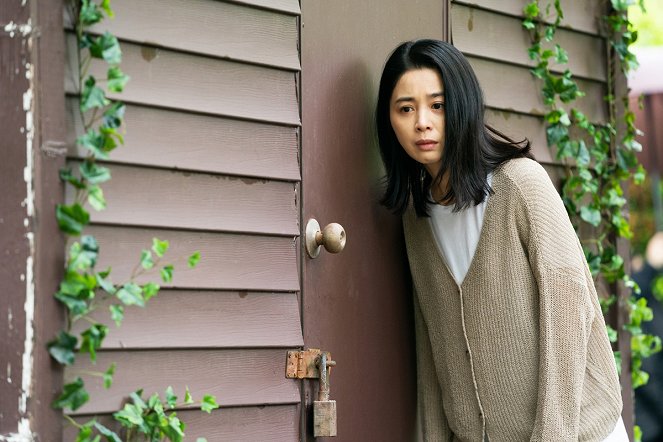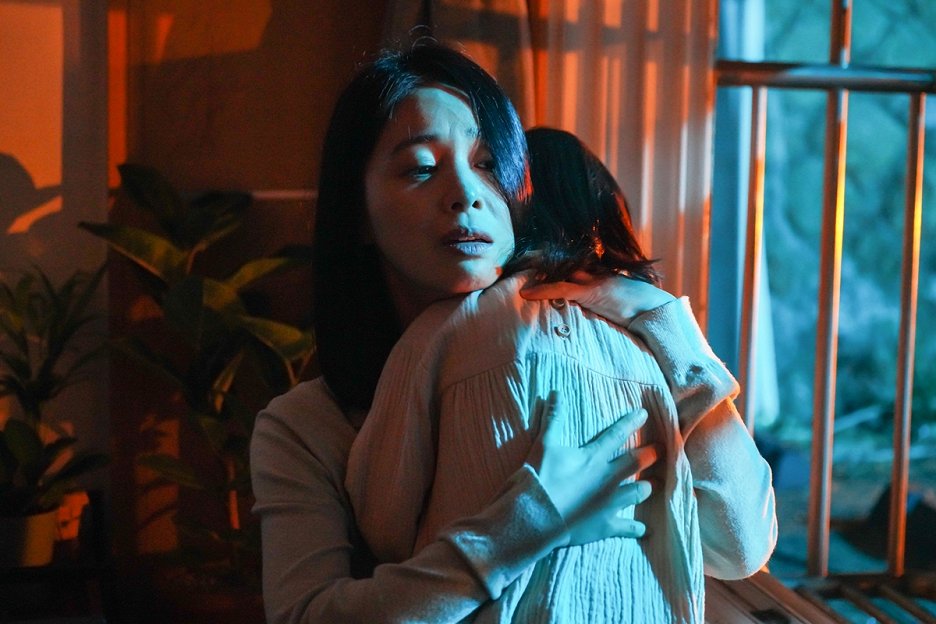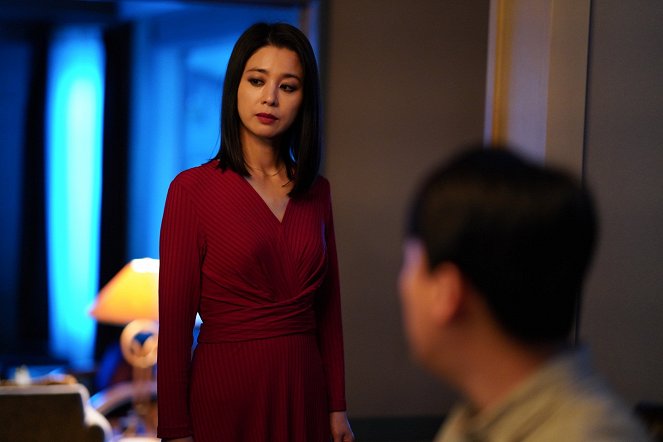Contorted (2022): A Haunting Exploration of Grief and Madness
Contorted (2022), directed by Kang Dong-hun, is a South Korean psychological horror film that delves deep into the intersection of domestic trauma, mental illness, and supernatural dread. Based on the acclaimed novel The Contorted House, the film builds its horror not on overt ghostly imagery but on mood, suggestion, and the slow unraveling of a troubled mind.
The story follows Myeong-hye, a mother who moves to a remote countryside home with her husband Hyung-min and their children. The family is struggling financially and emotionally, with Myeong-hye herself showing signs of psychological distress even before the move. From the moment they settle in, the house exudes an eerie atmosphere—dark hallways, creaking floors, and a mysterious shed nearby that seems to hold secrets of its own.

As time passes, Myeong-hye becomes increasingly disturbed. She hears whispers, sees shadowy figures, and starts to believe something supernatural is inhabiting their home. Most notably, she begins to act as though her youngest daughter—who, it is implied, may have already died—is still alive. Her husband and the rest of the family are unable to reach her emotionally, as she descends further into paranoia and hallucination.
One of the film’s major strengths lies in its atmosphere. Rather than relying on constant jump scares or traditional horror tropes, Contorted creates a sustained sense of dread through its quiet moments, tight framing, and unsettling sound design. The cinematography often shrouds scenes in darkness, giving viewers a sense of disorientation and claustrophobia. The soundscape—filled with distant crying, whispers, and abrupt silences—intensifies the tension.

Seo Young-hee delivers a powerful performance as Myeong-hye. Her portrayal captures both the fragility and volatility of a woman on the brink of mental collapse. There’s a constant uncertainty about whether the horrors she experiences are supernatural or rooted in her fractured psyche. This ambiguity is what drives the film and keeps the audience guessing.
Thematically, Contorted deals heavily with unresolved grief and suppressed trauma. It explores the devastating impact of loss, the denial that can follow tragedy, and how the mind can bend reality in an attempt to protect itself. The film doesn’t spoon-feed its answers, instead leaving many narrative threads open to interpretation.

However, not all elements of the film land effectively. The pacing, especially in the second half, can feel uneven. Some plot points are underdeveloped, and the mystery behind the house’s past could have been explored more deeply. Viewers seeking a tightly plotted, high-intensity horror may find Contorted too introspective or subdued.
Nevertheless, the film stands out for its emotional core and psychological depth. It’s not just about haunted houses or vengeful spirits—it’s about how people haunt themselves. The blend of domestic drama and horror gives the film a unique texture, one that lingers long after the final scene.
In conclusion, Contorted is a chilling, somber, and emotionally resonant film. It uses horror as a lens to explore grief, guilt, and the fragility of the mind. While it may not satisfy those looking for traditional scares, it offers a rich, layered experience for fans of psychological horror with heart.


